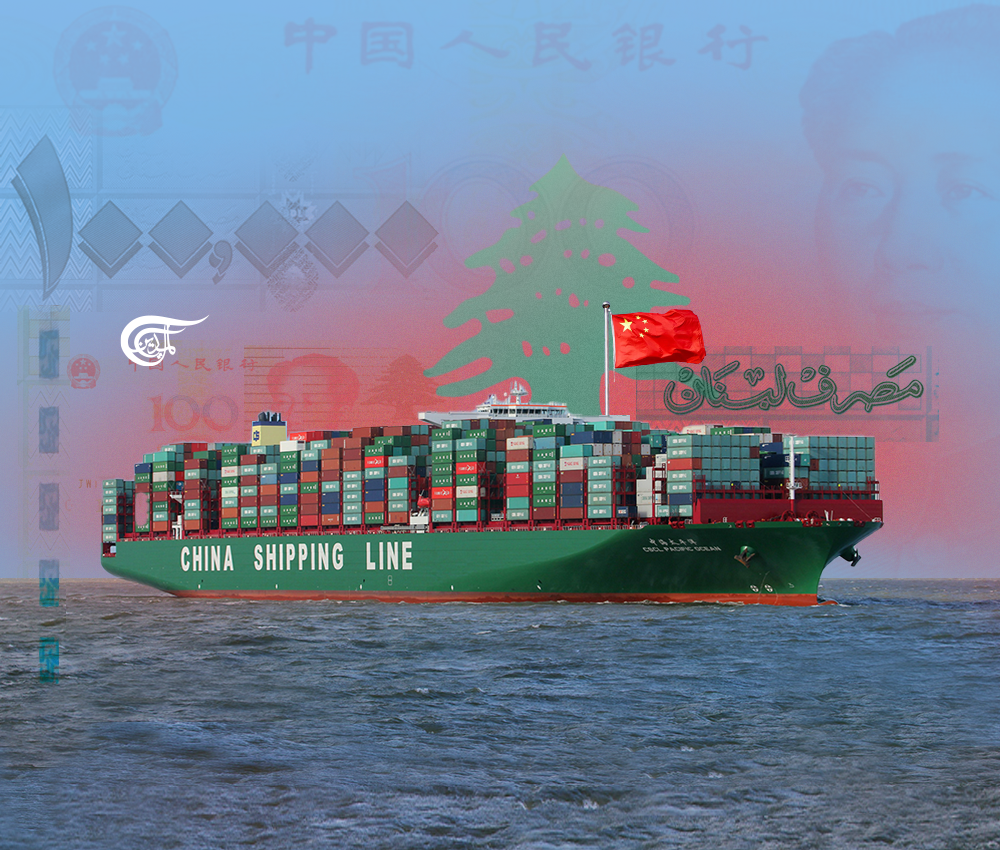Reflections on the Sino-Lebanese Relations
The Belt and Road Initiative may represent the central aspect of future bilateral relations between China and Lebanon.
This article is written on the fiftieth anniversary of the establishment of Sino-Lebanese Relations. For me, as a specialist in Chinese-Arab relations, and because I belong to my homeland, Lebanon, and to my second country, China, it was necessary to write this brief article to shed light on some aspects of Sino-Lebanese relations since the founding of the People’s Republic of China in 1949 until the present time. I hope that this relationship will develop and reach the level of a strategic partnership despite all the political, economic, and security difficulties that surround it.
A few years after World War II, the Chinese Communist Party took control of Beijing and the People's Republic of China was established in 1949 under the leadership of Chairman Mao Zedong. After the founding of the People's Republic of China in 1949, Lebanon did not recognize the People's Republic of China and the Central Government. During the Korean War, China sent troops to defend North Korea to counter US military forces, which in 1951 led Lebanon to condemn China as an aggressor. In 1952, Lebanon followed the United States' recommendation to postpone a proposal that would exclude the Republic of China, represented by Taiwan, from the United Nations. This Lebanese position was not taken unanimously, which led to debates in both the House of Representatives and the Cabinet.
An abrupt turn occurred in the aftermath of the Bandung Conference in 1955 when China signed 10 trade agreements that included Lebanon. In 1956, the President of the Chinese Islamic Society met the Prime Minister of Lebanon. Lebanon had closer relations with Taiwan in the early 1950s. In the late 1960s, Lebanon's trade with Beijing exceeded trade with Taiwan, which led to closer cooperation. Diplomatic relations were established in 1971 but remained minimal for a long time. Relations during that period were mainly based on economic interests. After establishing diplomatic relations, China considered Lebanon an economic partner, and Beirut was considered the financial and economic center of the Middle East. In 1972, China opened a branch of the National Bank of China in Beirut. Later that year, Lebanese Foreign Minister Khalil Abu Hamad made his first visit to China, which increased economic cooperation with a new trade agreement, reciprocal transit facilities, and expanded intra-trade. However, Beijing's plans were disrupted in 1976 with the civil war in Lebanon. Economic relations between Beijing and the two countries developed in the 1970s, but internal instability thwarted efforts to develop bilateral relations and implement the proposed projects.
The Chinese government began expanding cooperation with Beirut after 2000. During Prime Minister Rafic Hariri's visit to Beijing to meet with Chinese Prime Minister Zhu Rongji in 2002, the two governments announced their desire to speed up coordination on cooperative projects. This has led to the expansion of cooperation in multiple sectors. In 2005, China and Lebanon signed a tourism cooperation agreement. This agreement is designed to encourage investment in joint tourism sectors and increase communication between tourism companies through the exchange of professional skills. Cooperation has also expanded to include educational and cultural exchange, with Mandarin courses being offered at the American University of Beirut. There is also a Confucius Institute in Beirut at Saint Joseph University. However, cultural exchanges, tourism, and education are not the only indicators of closer diplomatic relations between the two countries. In 2009, China invited more than 150 Lebanese professionals to attend seminars and courses in various fields such as economics, finance, agriculture, journalism, and education.
The website of the Ministry of Foreign Affairs of the People's Republic of China describes "2014" as the year during which relations with Lebanon developed, which led to increased cooperation. That year, CPPCC Vice President Luo Fuhe attended a reception to celebrate the 70th anniversary of Lebanon's Independence Day. In 2015, Prime Minister Tammam Salam stated that Lebanon wanted to be a reliable partner for China during the Arab-Chinese Businessmen Conference. The two sides view bilateral cooperation in culture, education, press, arts, and military as a means to expand friendly exchanges. It is important to note that the expanded cooperation reported by the State Department came shortly after the Belt and Road Initiative was announced.
It seems that the central interest of bilateral relations is directly related to economic purposes. The growth of economic relations has been observed in recent years. In 2013, China became Lebanon's first trading partner. Beirut made efforts to bring in more Chinese investment through its participation in the Shanghai Expo in 2010. China helped Lebanon build a mobile telecommunications network, solar heating systems, and cash assistance programs for Palestinian refugee camps. However, efforts to increase trade exchange between the two countries were affected by the Syrian crisis, as land routes for Lebanese exports were cut off. There were no alternatives to find safe ways for Lebanese exports. Trade and economic partnerships between China and Lebanon have developed extensively in recent years. Lebanon has been part of Beijing's growing interest in Arab countries regarding trade. However, there are important trade imbalances that could increase with the Belt and Road Initiative.
China has promoted a win-win strategy and peaceful dispute resolution through a policy of non-interference. China is participating in the temporary United Nations peacekeeping force (UNIFIL) in Lebanon, where Prime Minister Wen Jiabao announced the deployment of 1,000 Chinese peacekeepers. In 2006, Liu Zhenmin, China's deputy representative to the United Nations condemned "Israel's" actions, as it was violating Lebanon's sovereignty by force. China called upon "Israel" to stop using force and lift the armed blockade on Lebanon. On the other hand, China also opposed the military operations of the Lebanese Hezbollah to cross the border and launch missile attacks on Israeli cities. This was the first time that China publicly condemned Hezbollah's actions. It also blamed Washington for using the conflict to pressure Iran and Syria and to export democracy. China's intervention was more in words than in deeds. China did not directly participate in the Lebanese mediation but played an indirect role by contributing through the United Nations and the UN Security Council. China also provided financial support to Lebanon.
The Middle East is a complex region that attracts the attention of many international players. Many Middle Eastern countries are turning east to countries such as China, Russia, and India for their economic and security interests; with Beijing seeking to increase relations with countries in the region and develop the Belt and Road Initiative. China wants to build a solid partnership with Lebanon, but it doesn’t want to plunge into the Lebanese sands and get involved randomly and without realizing the risks.
Beijing emphasizes adopting a constructive approach in the region regarding security cooperation and counterterrorism, through training and assistance in law enforcement cooperation. Multiple events have negatively affected US influence in the Middle East, such as the unfavorable international support for the war in Iraq. However, the United States remains involved in Syria, through opposition to the Assad regime and strikes on Syrian army bases. Further Chinese involvement in Syria depends on US actions in the conflict, not the other way around. At present, China is more involved in global leadership by promoting mediation, non-interference, world peace, and addressing global challenges. China and Russia were identified in the Washington report as global threats. Significant Chinese expansion poses a long-term threat to US leadership in the Middle East.
The Belt and Road Initiative presents new horizons in China's relations with Lebanon. In 2017, the Arab Chambers of Commerce and the China Council for the Promotion of International Trade (CCPIT) signed two memoranda of understanding to promote the Belt and Road Initiative, including Lebanon. In 2018, during the China-Arab States Cooperation Forum (CASCF), China announced loans to Arab countries totaling $20 billion, with aid packages totaling more than $100 million, including funds for Lebanon. The Belt and Road Initiative may represent the central aspect of future bilateral relations between China and Lebanon.
Lebanon has ambitions to be an important part of the initiative because its strategic geographic location with direct access to the Mediterranean makes it an interesting partner for infrastructure investments. The ports of Beirut and Tripoli could become central locations for imports and exports across the Mediterranean. Indeed, China has invested in the port of Tripoli. It is important to note that the Federation of Tripoli Municipalities in Lebanon is a member of the International Chamber of Commerce of the Silk Road in China. Such developments will facilitate the expansion of trade exchange with Lebanon through a direct route. Moreover, former Chinese Ambassador to Lebanon Mr. Wang Kejian said, "China is ready to help Lebanon develop its cities and towns." Lebanon's geographical proximity to Syria could facilitate Chinese investment in Syria's reconstruction through a partnership with Lebanon.
The desire to strengthen bilateral relations was emphasized during a meeting between Lebanese President Michel Aoun and Jiang Zhengwei, President of the International Council on Information Technology. The relationship aims to enhance cooperation not only in infrastructure development but also investments in new energies and other vital sectors. Former Lebanese President Michel Suleiman believes in increasing cooperation in the field of alternative energies, a sector the country needs. Lebanon can benefit from the Chinese government's support for private investment in the Arab world. In fact, most Arab governments are establishing partnerships with China to develop their industrial market. Former Prime Minister Saad Hariri has identified China as a role model in terms of advanced technology. Thus, Beirut can become a logistics and trade center for China and the Belt and Road Initiative. President Michel Suleiman has identified an interesting aspect of future cooperation, as he raised the issue of refugees in Lebanon from Syria and Palestine and identified China as a country that can provide assistance in this field through its openness policy.

 Mohamad Zreik
Mohamad Zreik
 10 Min Read
10 Min Read












